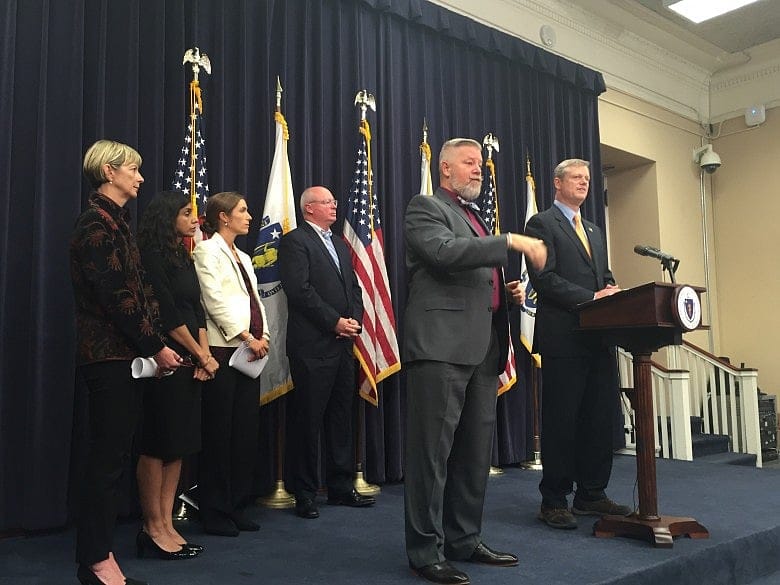Baker would let doctors detain drug abusers for 72 hours

BOSTON – Clamping down on opioid drug abuse by limiting quantities of prescribed medication, requiring closer prescription monitoring and giving doctors greater power to hold patients for involuntary treatment are just some of the ways Gov. Charlie Baker wants to ease a crisis that has claimed thousands of Massachusetts lives in the past decade.
In a measure he introduced Thursday, Baker also would improve education targeting young people at risk of becoming abusers, move women committed for detoxification treatment into Taunton State Hospital and out of the Framingham state prison, and strengthen training for medical professionals involved in treatments using opioid drugs such as oxycontin and fentanyl.

